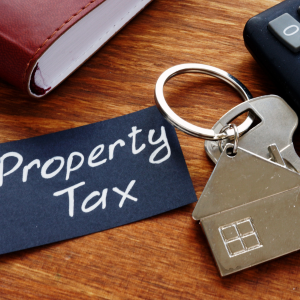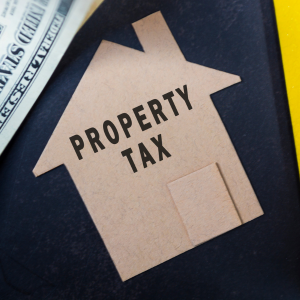
Understanding Real Estate Taxes in Houston, Texas
Real estate taxes are important for both buyers and sellers in Houston, Texas, when selling a home. In Houston, property taxes are based on how much the Harris County Appraisal District thinks the house is worth.
Until the close date, sellers are responsible for paying prorated property taxes. This means they pay the part of the taxes that were due while they owned the home. To avoid problems during the sale process, buyers should ensure that all property taxes are paid in full before the deal is finalized.
People who want to buy a house should know they must pay monthly property taxes starting when they own the house. If there is a debt, the buyer’s lender usually sets up an escrow account to handle these future payments.
Understanding these duties makes it easier for everyone involved in a Houston, Texas real estate deal.
Key Tax Implications of Selling Property in Houston
If a homeowner in Houston, Texas, wants to meet their financial obligations, they need to know the main tax effects of selling their home. People who sell their property are the ones who have to pay federal capital gains taxes on any money they make from the sale.
If you meet certain requirements, like living in your home as your main home for at least two of the last five years, the IRS will let you deduct up to $250,000 for single filers and $500,000 for married couples filing jointly. Local property taxes must also be paid up until the closing date, which can be different depending on Harris County’s prices.
Homeowners should also consider any Texas-specific transfer taxes or fees. Texas does not have a state transfer tax like some other states. Before completing the deal, buyers should carefully read over their final settlement statement to ensure that all prorated property taxes and other costs are correctly accounted for.
Talking to a tax expert or real estate lawyer can help you understand these complicated issues better and handle them more easily during a Houston home sale.
Seller’s Guide to Capital Gains Tax in Texas Real Estate
It is very important to know who is responsible for taxes when selling a home in Houston, Texas, especially regarding capital gains tax. People who sell land in Texas need to know that the capital gains tax is based on the profit they make from the sale.
According to the Internal Revenue Service (IRS), capital gains are taxable income. Homeowners need to check to see if they are eligible for any deductions or exclusions. For example, the IRS lets people who own and use their main residences meet certain ownership and use requirements and not have to pay capital gains taxes on homes worth up to $250,000 for single filers and $500,000 for married couples filing jointly.
Sellers should also consider their home’s cost basis, which is the original buy price plus any major changes that have been made to it over time. When you sell a home in Houston, the amount of financial gain can vary greatly depending on how these numbers are calculated.
Talking to a real estate tax expert or a lawyer who knows Texas law can also be very helpful in ensuring you follow the rules and get the most tax breaks possible when you sell your home.
Calculating Property Sale Taxes for Houston Homeowners

People in Houston, Texas, who want to sell their homes need to know about all the taxes that come with it. There is a capital gains tax to think about, which is based on how much money you made when you sold the land.
Texas doesn’t have a capital gains tax, but owners still need to follow the federal rules about capital gains. If a homeowner passes certain residency requirements, they may be able to have up to $250,000 of their gain taxed off. If they are married and filing jointly, they can have up to $500,000.
People who own homes may also have to pay local property taxes due before the closing date. Most of the time, these are split between the buyer and seller at the close. If someone in Houston wants to know exactly how much tax they might owe, they should talk to an expert real estate agent or tax professional. They should also make sure they follow all the rules when they are selling their home.
Exemptions and Deductions for Home Sellers in Texas
When people in Houston, Texas, sell their homes, they should know about tax breaks and exemptions that might help them. One big one is relief from capital gains tax. If they are single, they can leave out up to $250,000 of the profit from the sale. If they are married and filing jointly, they can leave out up to $500,000.
The house had to have been the seller’s main home for at least two of the five years before it was sold for this rule to apply. You may also get tax breaks for changes you made to the house while you owned it. Since these costs can be added to the home’s “adjusted cost basis,” the taxable gain decreases.
Moving fees may also be tax-deductible in some cases, as long as they follow certain IRS rules. People in Houston who are selling their homes should keep careful records of all the money they spend and talk to a tax expert to make sure they get the most tax breaks possible. This is because Texas real estate deals have a lot of complicated rules.
Navigating Local Tax Regulations When Selling a House
When selling a home in Houston, Texas, the seller and the buyer need to know the local tax rules. Texas has some of the biggest property taxes in the country, so they are an important thing to consider.
Most of the time, the seller is responsible for these taxes until the close date. After that, the buyer is responsible. If the seller still owes property taxes, they should ensure they are paid during the closing process to avoid any problems.
Aside from property taxes, capital gains tax may also apply if the home’s value has increased significantly since you bought it. However, homeowners can often keep much of their income from being taxed if they meet certain federal residency standards.
Sellers need to work closely with real estate agents and maybe even talk to a tax expert to help them understand these rules and ensure they follow both state and federal tax laws while getting the most money from the sale of their home.
Federal vs. State Taxes When Selling Your Houston Home
You need to know the difference between federal and state taxes in Houston, Texas, if you want to sell your house. When selling something at the government level, people may have to pay capital gains tax if the amount of money they make is more than the cap set by the IRS.
This limit is $250,000 for a single person and $500,000 for a married couple. Homeowners need to know their cost basis properly to determine how much of a gain is taxed.
Texas does not have a state income tax for people, though. This means that the money you get when you sell your home for cash in Houston, TX, won’t be taxed by the state anymore. No matter what, buyers should be aware of any property tax bills that may come up during the deal.
Talk to a tax expert or real estate agent who knows the local market and the government rules to ensure you’re following the rules and getting the best price for your Houston home when you sell it.
How Closing Costs Affect Your Tax Obligations in Texas
In Houston, Texas, it’s important to know how closing costs can change your tax obligations after you sell your home. Some of the fees that are part of closing costs are title insurance, escrow fees, and real estate taxes. All of them are very important to the deal.
For people in Texas who have paid these costs to sell their home, you might be able to deduct some of them from your federal taxes. Some costs, like property taxes or interest you’ve already paid, might change how you figure out your capital gains when it comes time to pay taxes on your home sale profit.
These specifics are important because they help you accurately report your income and spending on your taxes. Texas doesn’t have a state income tax, but the federal income tax and the capital gains tax still apply.
People who own certain things and live in certain places may not have to pay taxes on up to $250,000 if they are filing as a single person or $500,000 if they are married and filing jointly. When you sell your Houston home, you want to pay as little tax as possible, so you need to know which closing costs affect the amount of money you have to report as a gain.
Strategies to Minimize Taxes on Home Sales in Houston

People in Houston, Texas, who want to sell their homes can use several tactics to lower their taxes. One good idea is to use the capital gains tax exclusion. This lets single taxpayers exclude up to $250,000 of profit from their taxable income, and married couples filing jointly exclude up to $500,000 of profit from their taxable income as long as they meet certain requirements, like living in the home for at least two of the last five years.
Sellers should also consider the best time to sell. If they close at the start of a new tax year, they may have more time to deal with any possible tax issues. People who own homes can also look for ways to get the most out of their cost base by adding in costs like real estate agent fees and home improvement projects.
Talking to a tax expert who knows about Texas real estate laws can give you personalized help, ensure you follow IRS rules, and achieve the best tax results when you sell a home in Houston. If the process feels overwhelming or you’d rather avoid the complications, Lone Star Home Offers can help by offering a straightforward cash purchase, making it easier to move forward quickly.
The Role of Property Appraisals in Determining Sale Taxes
When selling a home in Houston, Texas, property assessments are very important for calculating the sales taxes. An accurate evaluation determines the property’s fair market value, which is important for determining how much capital gains tax you might have to pay.
The gap between the sale price and the home’s assessed value can have a big effect on your taxes when you sell your home. There is no state income tax in Texas, but you may have to pay federal capital gains taxes if the property’s value has gone up since you bought it.
The appraisal helps ensure this price is correct and shows how the market is right now. An assessment can also help you figure out if there are any tax breaks or deductions you can use to lower the amount of taxable income you have from the sale of your Houston home.
An appraisal is also a useful tool for negotiating with possible buyers because it shows both sides how much the home is worth and how much tax they will have to pay.
Legal Considerations for Paying Taxes After a Home Sale
When you sell a house in Houston, Texas, you need to know how to pay your taxes. Most of the time, the person who sells their land is the one who has to pay any capital gains taxes.
As long as certain costs are allowed, people who sell their homes for more than they paid for them will have to pay capital gains tax. If the buyer makes up to $250,000 or $500,000, they may not have to pay taxes. This amount might not be taxed if the buyer has lived in the house as their main home for at least two of the last five years.
They should also think about how they will split the property taxes after the deal is done. You should also know how much state and city tax you need to pay. In Texas, there is no state capital gains tax. However, when the deal goes through, you must pay any back property taxes.
You should talk to a tax expert or real estate lawyer to ensure that you’re following all the rules and that you don’t get hit with big tax bills during this big deal.
Understanding the 1031 Exchange for Texas Property Sellers
If you know about the 1031 swap, it can change how much you pay in taxes when you sell your Houston, Texas home. People who sell property can put off paying capital gains taxes for a while longer by buying another property of the same type with the money they got from the sale. This is called a 1031 swap, after Section 1031 of the Internal Revenue Code.
This way of delaying taxes is great for Texas real estate buyers who want to borrow money against their properties without having to pay a lot of taxes right away. Sellers must follow strict IRS rules, like finding possible replacement properties within 45 days and finishing the deal within 180 days. This helps them keep their business going in Houston’s fast-paced real estate market and their taxable income in check.
It is important to use a qualified middleman to make the trade go more smoothly and ensure all the rules are followed. This is the best way for Texas property owners to get the most money from a 1031 swap.
Common Mistakes That Increase Tax Liabilities on Home Sales
If you’re selling a house in Houston, Texas, you should know about the common mistakes that can make your taxes go up. When someone wants to sell their home, they often make the mistake of not living there for at least two of the last five years. If they don’t, they might not be able to get the tax break on capital gains on income up to $250,000 for single filers or $500,000 for joint filers.
Another mistake is not keeping accurate records of changes you make to your home. If you keep good records of these costs, you can lower your taxed gains by a lot by raising the property’s adjusted basis. People who are selling their homes often forget to pay costs like closing fees and charges to real estate agents. Because they can write these costs off, their taxable income may go down.
Your state and local taxes, along with any Harris County or Texas-specific fees, could be higher than you thought if you don’t know what they are. It’s also possible for your tax bills to go up if you don’t think about possible depreciation recapture taxes on homes that used to be rentals.
It is important to talk to a real estate tax expert in Houston about these difficult steps so that you don’t make costly mistakes.
Do You Have to Pay Taxes When You Sell Your House in Texas?

If you sell a house in Houston, Texas, you need to know what your tax obligations are. Even though Texas doesn’t have a capital gains tax, the money you make when you sell your house fast for cash in Sugar Land, TX, might still be taxed by the federal government.
There are times when the Internal Revenue Service (IRS) will let you avoid paying capital gains tax. You can leave out up to $250,000 of earnings if you file as a single person. If you are married and filing jointly, you can leave out up to $500,000. But the house had to be your main home for at least two of the five years before you sold it for this rule to apply.
When you sell a house in Houston, you should also think about any other taxes and fees that may come up. To follow the rules and get the best price for your home when you sell it, talk to a tax expert or real estate person who knows the Texas rules.
If you understand these tax effects, you can avoid unpleasant surprises and make better financial plans when selling your Texas home. For a simpler, stress-free option, contact us today to discuss a fair cash offer and see how we can help.
Who is Responsible for Sales Tax, Whether a Buyer or Seller, in Texas?
It is important to know who is responsible for the taxes when you sell a house in Houston, Texas. When you buy or sell a house in Texas, there is no sales tax. However, you do have to pay other taxes and fees to sell your home.
Most of the time, the seller pays any property taxes still due until the closing date. These property taxes are split up based on the exact date of the sale when the deal is done.
The buyer will then have to pay the taxes on the house after the deal is done. People who buy a home may have to pay capital gains tax if they make more than a certain amount of money when they sell it. There is no sales tax itself.
People buying or selling a home in Houston, Texas, should talk to a real estate lawyer or tax professional to fully understand their responsibilities and ensure they follow all Texas state rules. These steps ensure that everyone knows how to pay any taxes that come up during the sale.
Does a Seller Pay Property Taxes at Closing in Texas?
When you sell a house in Houston, Texas, it’s important to know who will pay the property taxes at the close. In Texas, including Houston, property taxes are due once a year but are paid late.
This means the property taxes for the whole year are due on the last day of the year. Most of the time, the seller pays their share of the property taxes up to the closing date when the deal is finalized.
During the real estate deal, the buyer and seller will talk about how to handle these delayed taxes. People selling their homes usually pay their own property taxes from January 1st to the day of closing.
After this date, the customer is responsible for any amount still owed. This agreement ensures that both parties fairly share the tax load based on how long they owned the property during that tax year.
So, yes, sellers do pay some of the property taxes when they close on a house in Houston, Texas. This is to settle their debt until they no longer own the house. Knowing how this process works helps keep things under control during real estate deals and ensures that local tax obligations are met.
What Taxes Do I Pay When I Sell a Home?
When people in Houston, Texas, sell their homes, they need to know the tax consequences. Capital gains tax is the main thing that buyers need to consider if the property’s value has gone up since they bought it.
Texas has no state income tax, so there is no state capital gains tax. However, the federal capital gains tax may still apply. If homeowners meet certain ownership and use requirements, they may be able to keep up to $250,000 (or $500,000 if they are married and filing jointly) of their taxed income.
Also, sellers should know that property taxes are prorated at closing. This means that they will have to pay their share of the yearly property taxes until the date of the sale. It’s also important to think about any transfer taxes or fees that might be involved with the deal.
Asking a real estate lawyer or tax expert about these duties can help you understand them better and ensure you follow all the rules when selling a home in Houston.
Need to sell your house fast? Lone Star Home Offers offers fair cash deals, no repairs needed, and a hassle-free process. Call (713) 234-6562 today for a no-obligation offer!
Helpful Houston Blog Articles
- Navigating Probate Real Estate Sale In Houston, TX
- The Sale Of Your Houston, TX Home During Divorce
- Sell A Foreclosed Home In Houston, TX
- Selling Your House Without A Realtor In Houston, TX
- Selling Your Fixer-Upper House In Houston, TX
- Selling Your Home With Tenants In Houston, TX
- Selling An Inherited House In Houston, TX
- Who Is Responsible For Taxes When Selling A Home In Houston, Texas?
- How Long is Pre-foreclosure in Houston, TX

| ESCROW PAYMENTS | ESCROW FUNDS | TAX RELIEF | REAL ESTATE INVESTMENTS | PRORATION | WEALTH |
| VALUATIONS | PROPERTY VALUATION | MONEY | INVESTMENTS | INSURANCE PREMIUMS | TITLE COMPANIES |
| HOMEOWNERSHIP | HOMEOWNERS INSURANCE | TAX DEDUCTIONS | RENTAL PROPERTY | REALTORS | LAWYER |
| HOMESTEAD EXEMPTION | CASH | BUDGETING | BUDGET | PASSWORD | |
| COMPANY | TAX-DEFERRED | OPT OUT | MANAGEMENT | HEIRSHIP | INHERITANCE |
| CREDIT | COMMERCIAL REAL ESTATE | TAX BREAK | TAX PLANNING | DEPRECIATION DEDUCTIONS | SAVINGS ACCOUNTS |
| OPTION | MESSAGE | INFORMATION | DATA | CPA | CAPITAL ASSET |
| BRACKET | TAXES IN TEXAS | AN INVESTMENT PROPERTY | LONGTERM CAPITAL GAINS | SHORTTERM CAPITAL GAINS | GAINS TAX ON |
| YOUR CAPITAL GAINS TAX | PROPERTY TAXES IN TEXAS | BETWEEN THE BUYER AND | TO AVOID CAPITAL GAINS | PAY CAPITAL GAINS TAX | CAPITAL GAINS TAX ON |
| LONGTERM CAPITAL GAINS TAX |